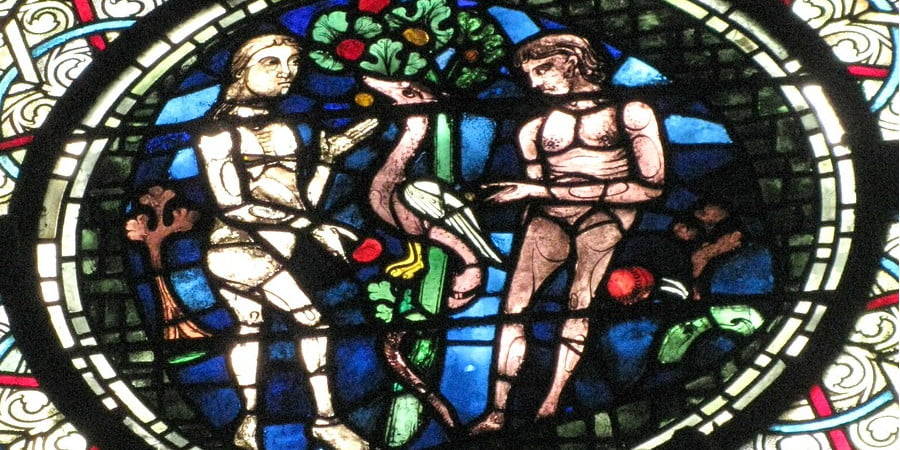The idea that women are to be submissive to male leadership seems to be having something of a renaissance in Australian Evangelicalism, or at least in Sydney/NSW and among those claiming to be “Reformed”. The year began with new Sydney Anglican marriage rites in which a bride promises to submit to her husband. This was followed by the disinviting of John Dickson to the Katoomba Womens Convention because of his booklet arguing women should be able to deliver sermons; and in February AP magazine, the official magazine of the Presbyterian Church that positions itself as “Australia’s Reformed Evangelical Periodical”, was themed around gender. It trumpeted the idea that there is a God ordained gender hierarchy and in the editorial Peter Barnes concluded
[quote]So overwhelming and so clear is the biblical teaching on this subject that attempts to deny it are unconvincing to the point of being embarrassing. It is a test case for evangelical faithfulness. As Wayne Grudem asserts, so-called evangelical feminism is in fact “a new path into liberalism”.[/quote]
Against such strident claims I want to push back strongly.
It is nonsense to claim that “So overwhelming and so clear is the biblical teaching on this subject that attempts to deny it are unconvincing to the point of being embarrassing” let alone to argue “It is a test case for evangelical faithfulness”. Yes, there are biblical texts that argue for the submission of wives to husbands and that prohibit women teaching men. But there are also just as many texts calling for slaves to submit to their masters. We don’t use those to justify slavery – Christians have been at the forefront of antislavery campaigns past and present. To work out a biblical ethic on any issue we need to ask why the Bible provides a particular instruction and determine if the rationale is transcultural.
Those arguing for female submission argue that male leadership is transcultural, that it is a principle of creation, and suggest 1 Corinthians 11:3-16 and 1 Timothy 2:12-14 teach this. The meaning of these passages is the subject of great debate among Evangelical scholars. They are filled with difficulties. In the case of 1 Corinthians 11 the issue Paul addresses is head coverings worn by women during prayer and prophecy. We don’t know whether he is talking about an item of clothing, such as a veil, or hairstyle, nor do we know the cultural significance of these. The passage opens with the claim that Christ is head of men and husbands head of their wives. In the first century “head” could be used metaphorically to speak of origins or authority. Which is intended here? Verses 8-9 speak of woman as the “glory of man” and point to the creation stories to substantiate the claim (woman was created out of man and for man). Nowhere else in Scripture or extrabiblical literature are women described as the glory of man and Paul doesn’t explain what he means. Scholars make educated guesses, but that is all they are. And given we don’t know what Paul means by woman as the glory of man we are even less certain how Eve being created out of Adam and for Adam shows this. There are a myriad of ways these can be interpreted.
And if 1 Corinthians 11 is fraught with uncertainties, a survey of commentaries reveal 1 Timothy 2:11-15 is no easier. The church is wracked by false teaching, with many of the women taken in by it. To what degree does this inform verses 11-12? The term translated “have authority” is different to that used elsewhere in the New Testament and often has the connotation of domineering. To what degree does this inform verses 11-12? Verse 15 speaks of women being saved through childbirth, a phrase that has perplexed interpreters. To what degree does this inform verses 11-12? Yes Paul uses the creation texts to buttress a claim that women at Ephesus should not teach or have authority over/domineer men, but is the creation principle that of authority, partnership, honour, or some other thing? Is the sense, “Women should never teach or be in authority over men because God created men to be the leaders” or “The women at Ephesus should stop trying to domineer, because God created men and women to be in partnership” or “Given female public speech is regarded as shameful to a woman’s husband [ie in first century culture] wives should avoid it, for God created us to honour one another” or something else? All these are plausible.
So the claim that the biblical teaching is clear is demonstrably false. Indeed, given the only two texts where a creation order is supposedly taught are so unclear and open to diverse interpretation, the creation hierarchy argument is thoroughly discredited. If the supposed creation hierarchy is so central to human relationships it is strange that God chose to say nothing about it in the Old Testament, nothing about it in the teaching of Jesus, but left it to very short, cryptic lines in two of the most difficult passages in the New Testament.
A cogent case can be built that biblical commands around submission should be treated in the same way that we treat commands around slavery. Both patriarchy and slavery were social systems that were sub-Christian, standing in opposition to the creation story that tells us that all people are created equal, called to share rule of the earth not rule of each other, and the gospel story that tells us we all stand before God as equals, sharing a common call to the kingdom, a common purpose of being shaped into the image of Christ, and a common empowerment by the Spirit. Nonetheless, patriarchy and slavery were the social systems in which the first Christians lived. How were they to do so? By infusing their relationships with the virtues of Christ. Thus the call for wives and slaves to submit gracefully and husbands and masters to rule considerately. This should not be mistaken as laying down a God ordained model, but guidance on how to live Christianly when the social system is sub-Christian. Eventually we would be in a position to challenge the systems themselves. How tragic then that a resurgent voice within Evangelicalism is calling us back to those sub-Christian systems.
Moreover we ought to be clear that societies where men have authority over women are societies where women are systematically abused. A visit to the “developing” world should be enough to cure anyone of an aversion to feminism. Societies that place power in the hands of men see women less likely to be educated; less likely to eat during times of food scarcity; more likely to do most of the work of the household; more likely to be beaten; more likely to be forced to do things they don’t want to do. In a sinful world this is what happens when cultures embrace the principle of male authority. It should not surprise us – whenever you place power over one group in the hands of another it turns out badly. It’s no use arguing that this is not what God intends, for we live in a sin-stained, not a sin-free world. Were our society to embrace the hierarchical gender systems urged by some Evangelicals, this is what we would end up with.
So while I respect the integrity of my fellow Evangelicals who believe that God teaches a principle of male authority/leadership, applaud their desire to honour Scripture, and admire their concern for healthy relationships, I will resist their call to return to a patriarchal way of living as surely as I would resist calls for a return to slavery. Today is International Women’s Day, a good day to be reminded of these things and reaffirm our commitment to gender equality.







Heartily agree with your comment that a visit to a developing country should cure anyone of an aversion to feminism. On International Women’s Day, I visited a women’s literacy class in Nawalparasi. There, the night before, a woman had been killed by her husband – he claimed that she had been talking to “other men” on her mobile phone. The desire for male control of women is incredible, and leads to this kind of extreme outcome. On the bright side (if there is one to this story) – the women in the group were about to go “en masse” down to the local Police Post to register a case against the husband, and ensure he stayed in custody.
Thank you so much for this! My heart is broken by this new trend and how far backwards the church has moved on this issue in some denominations.
Thanks Gail.
thank you for this awesome article. i wanted to pass along this link to a website i created and make sure you were ok with me linking to this article: https://sites.google.com/site/christianpatriarchialwatchlist/the-watch-list/men-s-ministries